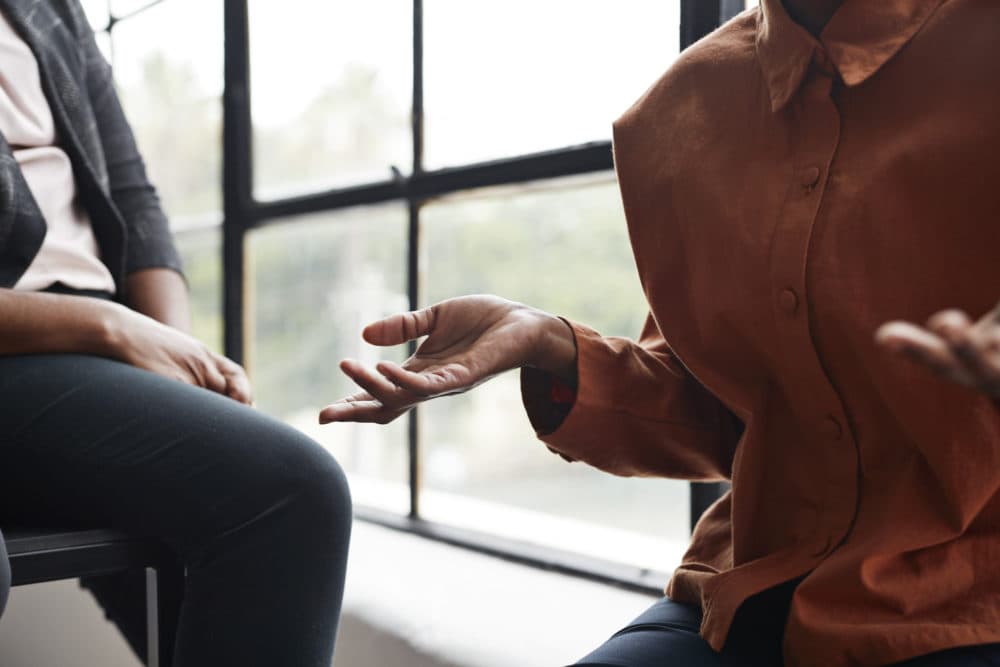Advertisement
Here & Now's 2020 Election Coverage
Braver Angels Teaches People On Opposite Ends Of The Political Divide To Converse Civilly
Resume
In Abraham Lincoln’s inaugural address, he implored Americans on the cusp of civil war to find “the better angels of our nature.”
They couldn’t — but can Americans today? A recent study of 2,000 people found that 62% felt they couldn't express political opinions without offending someone. Many felt it could jeopardize their livelihoods.
In 2016, a bipartisan group called Better Angels came together to “reject the normalizing of this extreme polarization” and “say no to the breakdown of political and social life that it brings." Now called Braver Angels, the group has spent the past four years helping people talk across the political divide.
Braver Angels got its start in a barn using marriage counseling techniques to bring Republicans and Democrats together. John Wood Jr., a national leader with the group and former vice-chair of the Los Angeles County Republican Party, says our ideas of people on the other side are influenced by partisan media.
The group conducts an exercise where each group lists the stereotypes they believe the other side has about them.
“Each side gets the opportunity to reflect on what kernels of truth there may be in those stereotypes as well,” he says.
For example, conservatives often say they’re not racist but that some racists do identify with the Republican Party and shouldn’t be welcomed, Wood says. On the left, folks say they don’t want total government control or handouts and acknowledge that some people take advantage of the system, he says.
During these conversations, Wood says he’s seen evangelical Christians become friends with Muslims, immigrants and other people with drastically different viewpoints.
“There are techniques that we can use that can allow us to communicate across these divides while maximizing our ability to preserve our relationships as Americans,” he says.
When talking about politics, frame your opinions as "I" statements instead of objective truths, he says. Statements such as that President Trump made the economy better than ever before or that former President Obama did more for health care than any Republican ever could make people defensive, he says.
These types of statements make people believe they need to win the argument by defending their side, he says, and that’s when they stop listening. Instead, Wood recommends using language like “in my view” or “from what I’ve learned.”
“When you introduce the aspect of your own subjectivity, you signal a certain humility that shows that you're also opening up the space for that person's input to be heard,” he says.
Choose humility over lashing out in anger at the other side, he recommends. There are also times when remaining silent is the best way to keep the peace depending on the context of the conversation, he says.
Paraphrasing people’s statements in a way that reflects their language and position also helps, he says. This way, one person can disagree while still accurately representing how the other side feels.
With COVID-19, stories from your community about the consequences of not following recommended precautions can add context and humanity to your political or social position, he says. Reflecting on the ways your side falls short is also powerful, he says.
To depolarize and build relationships across the divide, Americans need to curb their stereotypes about the other side, he says.
“If you introduce humility and some degree of reflection to your political point of view,” he says, “then the other side is much more likely to take the fact that you are being honest seriously.”
Karyn Miller-Medzon produced and edited this interview for broadcast with Tinku Ray. Allison Hagan adapted it for the web.
This segment aired on November 3, 2020.

